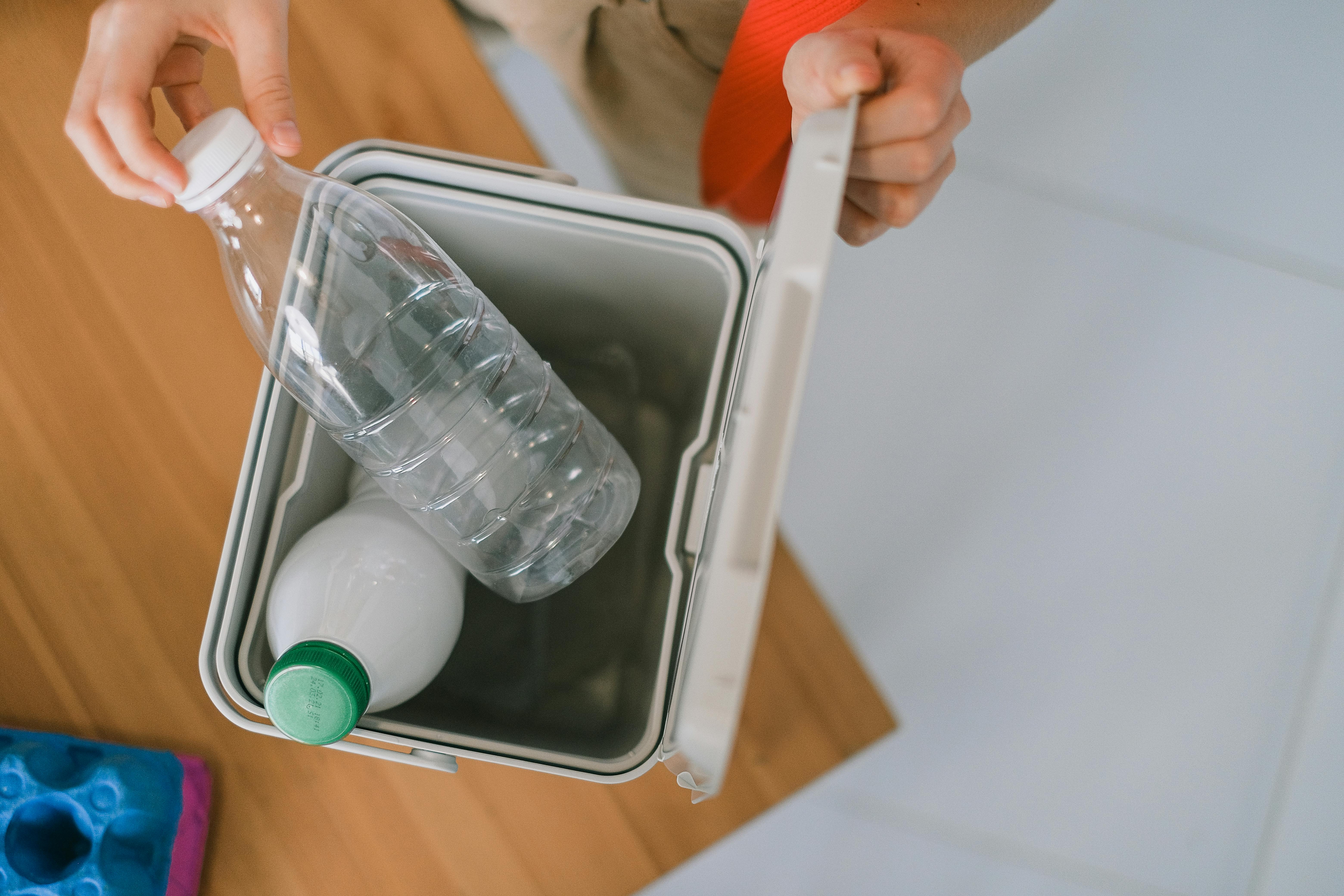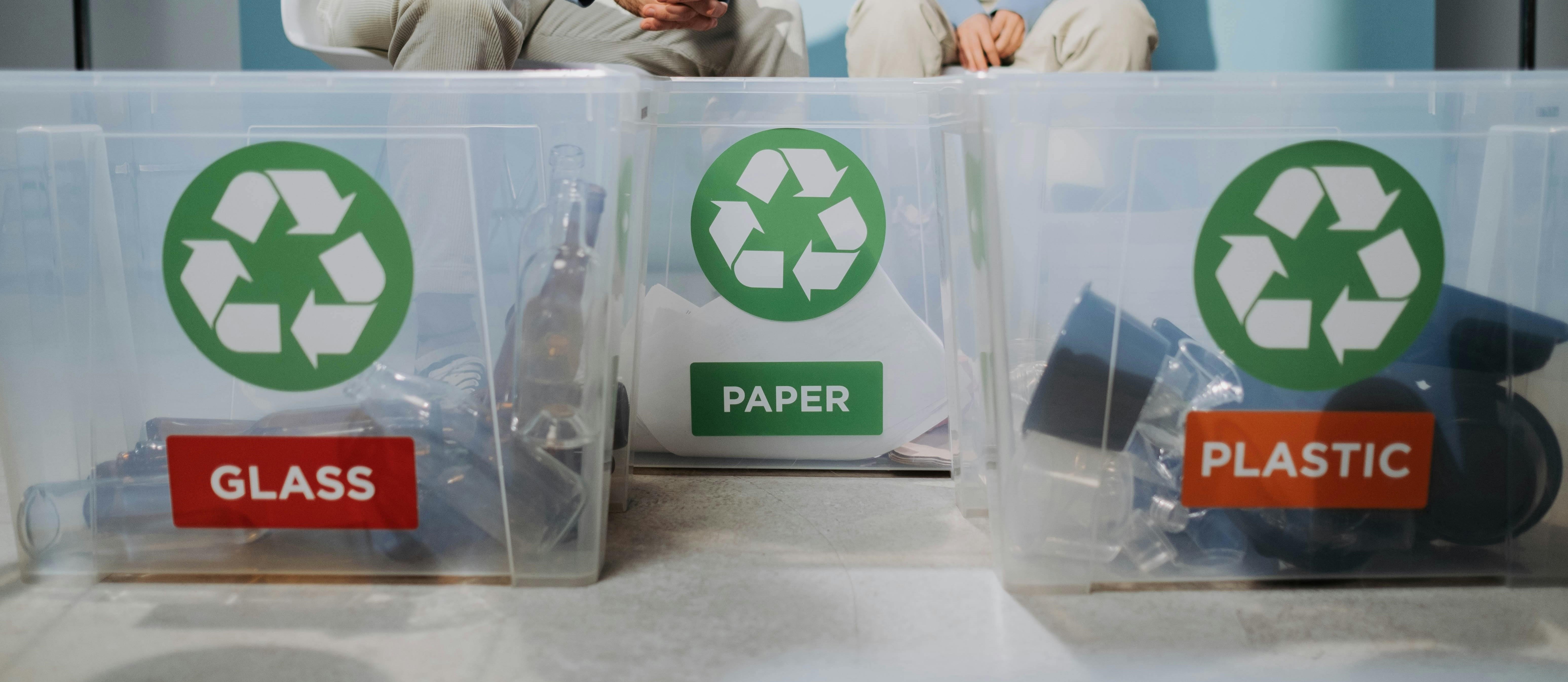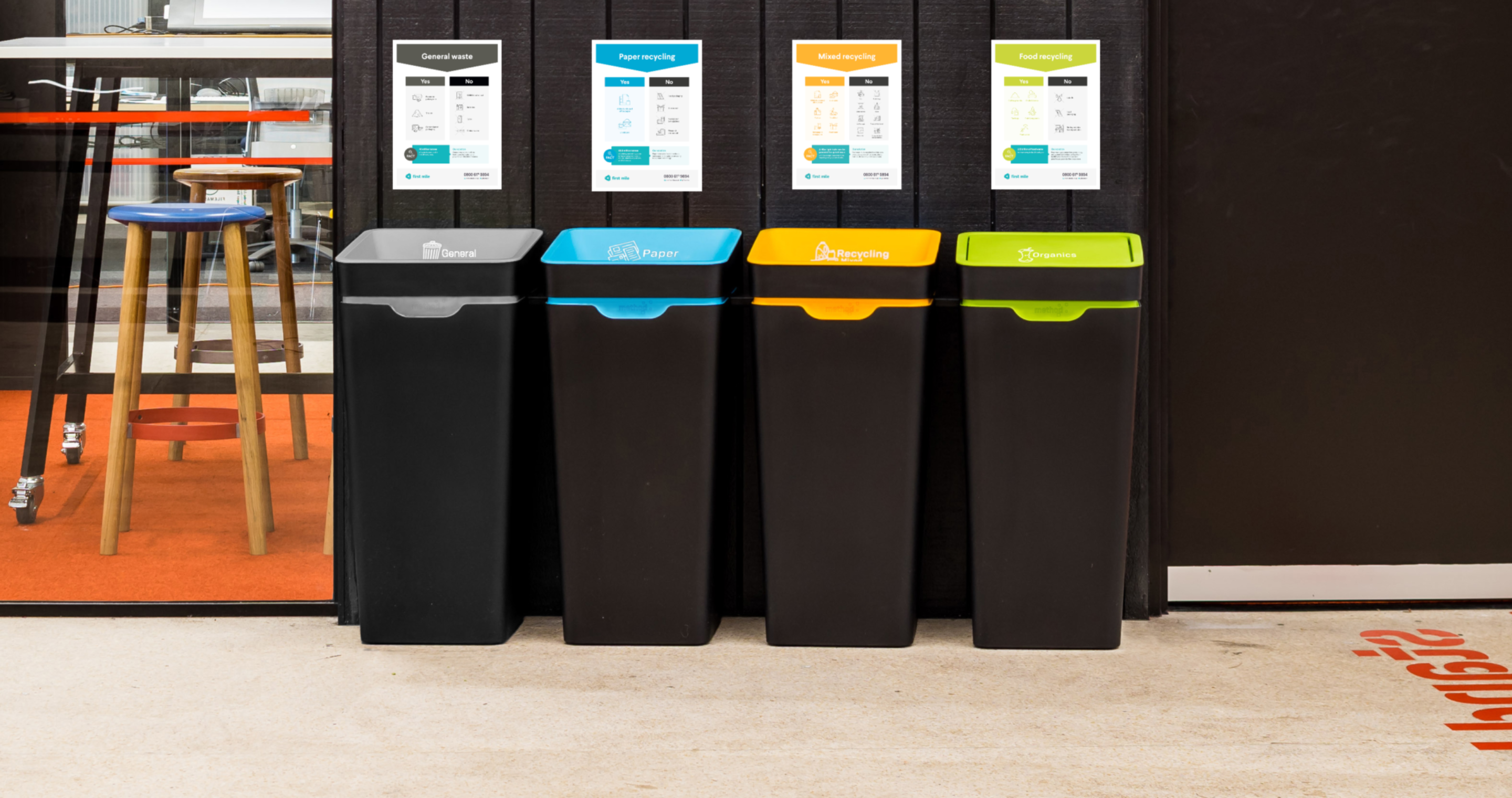As a retail business, you naturally produce waste. This could be from packaging, food on your premises and the products you sell, whether clothes, cosmetics or tech.
The retail industry continues to be under the microscope when it comes to environmental concerns and products finding their way to landfill – and rightly so. With new UK waste regulations now in place, it’s more important than ever for retailers to look critically at their retail waste management and environmental responsibilities.
In this guide, we’ll cover why waste separation matters, what recycling rules apply to shops and retail stores, and how to manage waste more sustainably with First Mile.

Why waste separation matters in retail
Whether you’re an independent shop or part of a national chain, waste is an unavoidable part of running a retail business, from product packaging and marketing materials to unsold items and food waste in staff areas.
But it’s not just a case of disposing of it all together. Separating your waste and recycling it properly helps your business cut costs, reduce landfill waste and meet sustainability goals. You’ll also improve operational efficiency with a cleaner back of house. And by having the right bins in place for your separated waste, you’ll make life easier for your staff too.
Importantly, you’ll be complying with UK legal requirements when it comes to waste, including the Waste (England and Wales) Regulations 2011 and the new Simpler Recycling Reforms introduced in early 2025.
In short? Just by separating waste, you can lower the carbon footprint of your business, reduce general waste disposal across your operation, and enhance your corporate social responsibility. All through simple changes to your waste disposal process.

What type of waste do retailers need to separate?
The types of waste you produce will depend on your store setup, product range and staff operations, but most retailers will need to separate the following:
- General waste: Non-recyclable items or anything that’s been heavily contaminated (e.g. food-soiled packaging).
- Cardboard and paper: This could be from packaging, delivery boxes and flyers.
- Plastic packaging: Including shrink wrap, bubble wrap, soft plastics and any packing film. These can quickly build up in busy retail environments.
- Food and drink waste: Even if you don’t sell food, anything from a staff kitchen or employee lunches should be properly separated and disposed of.
- WEEE waste and batteries: Any technology that you no longer need in your business must be separated and disposed of in the right way. This could include old laptops and desktops, handheld devices that no longer work, old tills and even lightbulbs. Some may be able to be repurposed and used again, others may need to be stripped for parts and recycled in specific ways.
If you want to stay clutter-free and keep your store compliant, contact us at First Mile. We can help you understand your waste responsibilities and put the right solution in place to recycle your waste.
What are UK retailers legally required to separate? – Retail waste compliance
Retailers now have a legal responsibility to separate certain types of waste under the Simpler Recycling Reforms, which became law on 31 March 2025. These regulations apply to all workplaces, including retail, and require food waste to be collected separately in agreement with your waste collector. Currently, this doesn’t apply to micro-firms with less than 10 employees, but these businesses will need to comply by 31st March 2027.
Under the new workplace recycling laws, retailers must separate the following waste streams:
Dry recyclable waste
This includes:
- Glass: Glass bottles and rinsed empty food jars
- Metal: Drinks cans, rinsed empty food tins, aluminium foil
- Plastic: Bottles, rinsed empty food containers, packaging like bubble wrap and shrink wrap
- Paper and cardboard: Delivery boxes, packaging, envelopes, flyers
Food waste
Food waste includes:
- Food leftovers
- Any waste generated by preparing food, even if you just have a staff kitchen and don’t serve food in the workplace
Black bin waste (also called residual waste)
This is the final bin for anything that can’t be recycled — for example, food-soiled packaging or items contaminated beyond recovery. The black bin should always be your last resort.

Benefits of proper waste segregation
Separating waste might seem like a small task, but it has a big impact. Even something as simple as putting cardboard in the cardboard bin and bubble wrap in the soft plastics bin helps reduce landfill waste and ensures everything is recycled properly.
And it has some business benefits for your store or retail business too.
- First, by reducing the amount of general waste you produce, you’ll cut your waste collections and save money in the process.
- You make it easier for your staff to dispose of items correctly – with well-labelled bins and a couple of training sessions, it will become a habit.
- You can improve your recycling rates and help meet your internal corporate social responsibility policies and environmental goals.
- With more customers favouring eco-conscious businesses, taking action on waste shows you're serious about doing your part.
How does First Mile help retailers stay compliant and sustainable?
We understand how important it is to make things easy for your business and ensure recycling becomes a help to you and your staff, rather than a hindrance.
Our retail waste services are designed to support shops of all sizes, from small independents to high-street chains and flagship stores.
We provide colour-coded bins with clear signage that can be easily stored, and can set up commercial waste collections as many times a week as you need it. This includes cardboard recycling for shops and retailers and plastic recycling, and we can also help you dispose of any technology too, through our WEEE recycling for retailers.
At First Mile, we have a zero-to-landfill guarantee with clear, transparent end destinations so you know exactly what happens to your waste once it's been collected. Plus, our carbon reporting tools make it simple to track your recycling performance and measure your environmental impact.

Ready to streamline waste in your store?
Looking to streamline waste across your store or chain? Explore our solutions to eco-friendly waste management for retail and find out how First Mile helps retailers across the UK cut waste, stay compliant, and hit sustainability goals.


